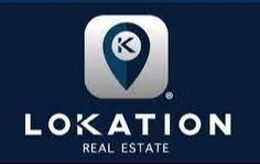|
Purchasing a home is arguably one of the biggest financial decisions you will make in your lifetime. As you start your hunt, don't forget there will be other costs associated with your purchase then the price of the home. Here are 5 fees to keep in mind as you begin to budget.
0 Comments
Inspections are an important part of the home-selling process. The home inspector will locate any potential problems with the property, making sure that all involved know what’s wrong and what needs to be fixed. What happens then, though? Whose responsibility is it to fix the issues that the home inspector discovered?
As with a lot of problems, the answer is a resounding “It depends.” Gauging Severity One big determining factor in how problems found in a home inspection are dealt with is how severe the issues are. A major problem with a property can be a deal breaker for many buyers. Depending on where you live, such a problem may even have to be addressed before the property can be sold. State-level restrictions vary, but most are rooted in making sure that sellers can’t avoid fixing potentially dangerous problems or leave them for the buyer to discover on their own. Even if a problem isn’t critical, most states require that any problems found by a home inspection be disclosed to potential buyers. This disclosure is a big deal, as it can significantly affect how much the buyers are willing to pay. Loan Program Requirements Beyond repair and disclosure requirements that vary from state to state, different loan programs (such as those offered by the Federal Housing Authority or Department of Housing and Urban Development) may have additional requirements when it comes to problems discovered during a home inspection. Many programs have very specific guidelines regarding the condition of the property that a buyer can purchase using those loans. If a loan program won’t allow a purchase while unsatisfactory conditions exist, the issues must either be repaired or have satisfactory arrangements made to facilitate the repair before the purchase can continue. Keep in mind that not all loan programs will make allowances for future repairs, either; in those cases, the repairs will either have to be made in full or the buyer will have to find a different lender that does not follow the same strict requirements. Negotiating Repairs In the event that there aren’t specific regulations at the state level or restrictions in the buyer’s loan program concerning problems with the property, it falls to the buyer and the seller to determine what repairs will be made. This is typically part of the price negotiation, as buyers are willing to pay more for a property that they don’t have to make extensive repairs to. In many cases, sellers may offer to cover the most pressing repairs and address any serious issues while the buyer assumes responsibility for any other issues found in the buyer’s home inspection disclosure. In many cases this will be agreed to in writing, either at the request of one of the parties or as a condition of the mortgage loan that the buyer is using for the purchase. By formalizing the agreement in writing, it ensures that both parties understand their responsibility and protects the seller from potential legal action regarding issues that weren’t addressed (provided that the seller completed all of the repairs that they agreed to.) Market Strength The strength of the housing market can have a big effect on who does the bulk of repairs on a property. If similar properties are plentiful and interest rates are low, it creates what’s referred to as a “buyer’s market”; buyers have a lot of options and can easily walk away from the purchase if they don’t get what they want. In this situation, the buyer has a lot of leverage and can usually get the seller to agree to either a lower price or a higher percentage of the repairs. When the opposite occurs and there are few choices and higher interest rates, a “seller’s market” is created. Buyers can’t walk away as easily and be guaranteed a good deal elsewhere, so sellers can often hold their ground more and get buyers to agree to higher prices or a greater percentage of repairs. Need Some Help? I can help, 📞 now! Iveth Caruso, your REALTOR in the North Atlanta Area Buying your first home can be an eye-opening experience in terms of encountering unfamiliar documents and forms. Fortunately, working with a qualified buyer’s agent like me makes it much easier to wade through the paperwork, understand the lingo, and successfully reach the closing table. After closing on your home, don’t be surprised if confusing and unsolicited correspondence related to your purchase starts arriving in your mailbox—or by email, phone, or text. Examine these inquiries cautiously, staying alert for potential scams! What sets the wheels in motion? After your purchase closes, the title company files the deed on your property with local government authorities, recording a change in ownership. Once this happens, your name and address become publicly-accessible information. Con artists rely on this information to execute various scams. Additionally, they may be trolling online social media posts or hacking into email accounts, searching for clues of upcoming or recently completed home purchases. Any related details or contact information can help execute their schemes, including real estate wire fraud, which targets about-to-close homebuyers and aims to strip them of everything they’ve saved to purchase a home. Five Homeowner-Related Schemes Con artists rely on tricking people into parting with their money or revealing sensitive personal information. Some scams are easy to spot, while others are more clever. Homeowners, in particular, should be wary of: 1. Fake utility bills. A new homeowner is threatened that their electricity (or other essential utility) will be shut off unless a payment is made immediately. If you’re in any doubt about the status of your account, look up the provider’s phone number and speak to a customer service representative. 2. Mortgage protection insurance. Similar to life insurance, mortgage protection insurance is designed to help a family stay in their home if a homeowner dies, by paying off the mortgage. Legitimate companies offer this product, but scammers also attempt to scare homeowners into buying fake policies. 3. Mortgage payment administration. Some companies offer to help homeowners pay off their mortgage faster by sending bi-monthly payments to an intermediary (and tacking on substantial administration fees). If you want to accelerate your mortgage payments, make direct arrangements with your lender. 4. Property tax payments. Scammers send a letter or place a call, threatening that you’ll lose your home if you don’t immediately pay overdue property taxes. Real estate taxes are typically calculated at closing (prorated between the buyer and the seller) and included in your monthly escrow payments. To verify your status, contact your local tax authority. 5. Home warranties. Many legitimate companies offer home warranties, which can help new homeowners protect themselves, in case a significant problem was overlooked during the inspection. Scammers, however, may attempt to sell fake policies to unsuspecting buyers. Note that several of these schemes aren’t limited to new homeowners. How can you fight back? In the U.S., the Federal Trade Commission (FTC) takes a leading role in collecting all types of complaints from consumers and sharing details with appropriate law enforcement agencies. Contact them at 877-FTC-HELP (382-4357) or ftccomplaintassistant.gov. Scams perpetrated by mail are considered mail fraud and can be reported to the U.S. Postal Service at 800-372-8347 or postalinspectors.uspis.gov Have any questions? I can help!
Iveth Caruso, your REALTOR in the North Atlanta Area
Do you have any questions? I can help!
Iveth Caruso, your REALTOR in the North Atlanta Area Do you have any questions? I can help!
Iveth Caruso, your REALTOR in the North Atlanta Area |
Categories
All
The information on this site is intended to be a free resource to provide general information to the public. The information is intended to supplement instruction from your legal, financial or real estate adviser. The information contained on this site should never be taken as a substitute for legal or financial advice from a licensed professional.
Archives
October 2021
|
Cell: 706.530.1114
Iveth Caruso Real Estate™ ©2017 All rights reserved. LoKation Real Estate is licensed in Georgia
Your Home, Your Dream, My Mission!
God, Family, then Business.





